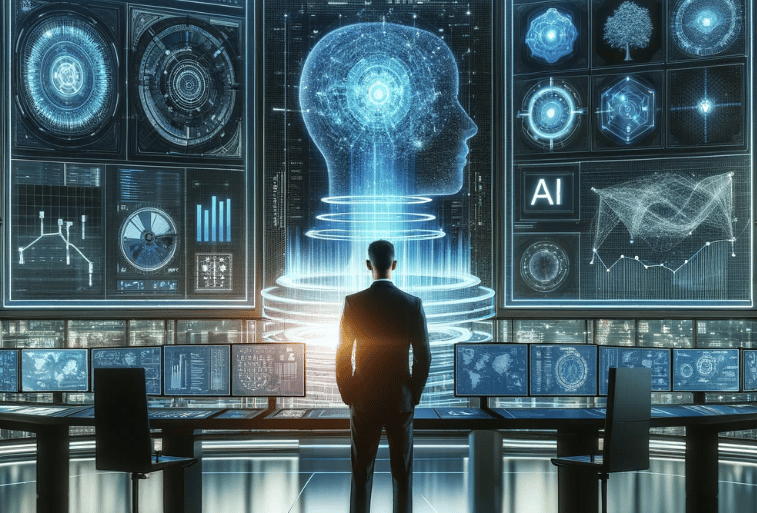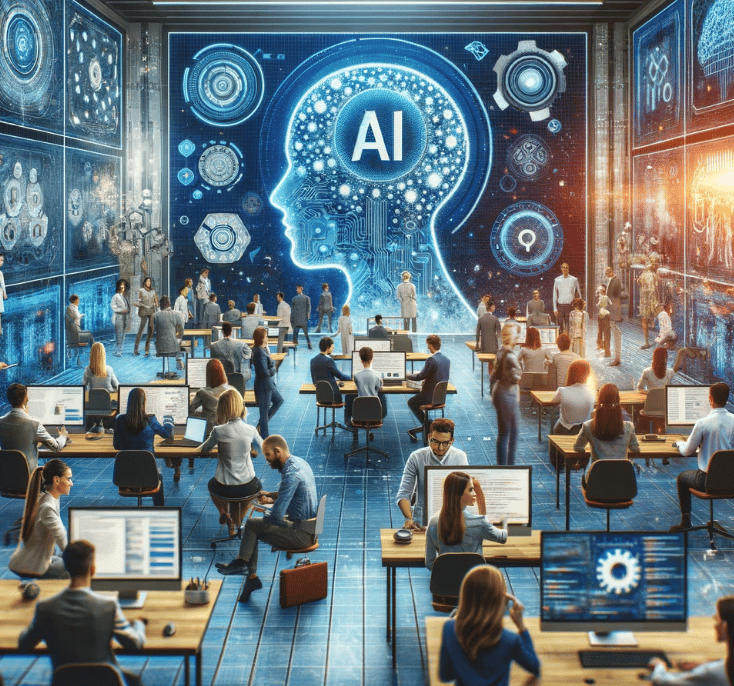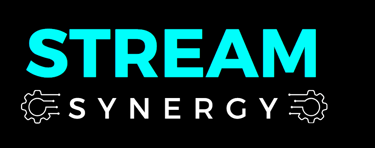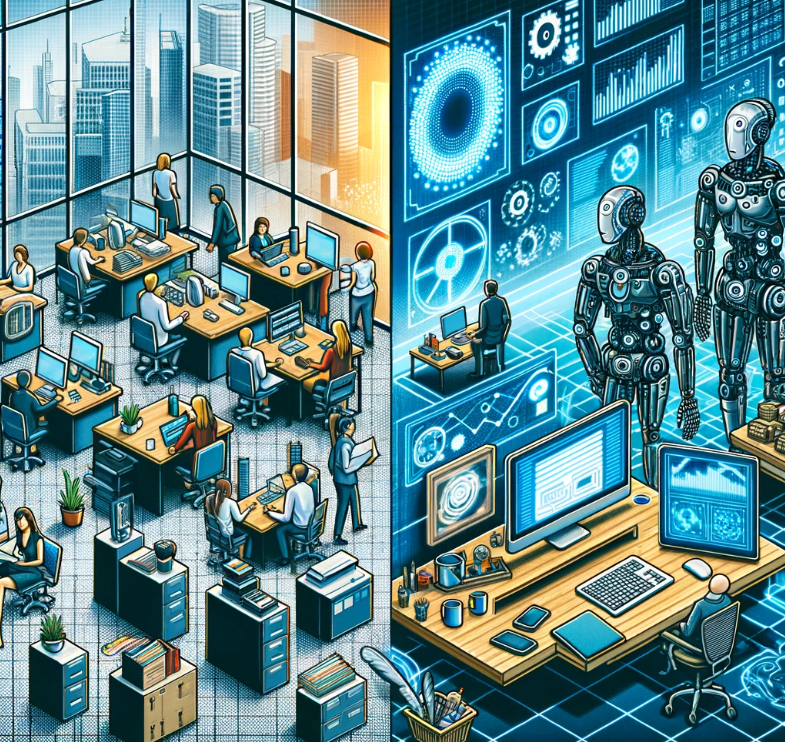

T
Future of AI in the work Landscape
Introduction
he work landscape is changing, and it's changing rapidly. Not too long ago, we lived in a
world where no one would have to worry about achieving a certain job position, as long as they worked hard and had a full plan towards getting there.
Nowadays, working hard, developing a plan, and dominating your competition may still not be enough for certain jobs out there.
The simple, but yet hard-to-grasp reason is because of a great friend and enemy we call Artificial Intelligence. With its gradual introduction in the job market are more advantages for those working in certain fields. But, there are also some tradeoffs too.
Positions such as graphic designers, customer support, software engineers, accountants, and many more are all in danger because of AI. Sure, it'll make the lives of many easier and more simplified than ever; but it'll also ruin and destroy the career opportunities for many.
Where will the world be in 5, 10, 20, or even 50 years?
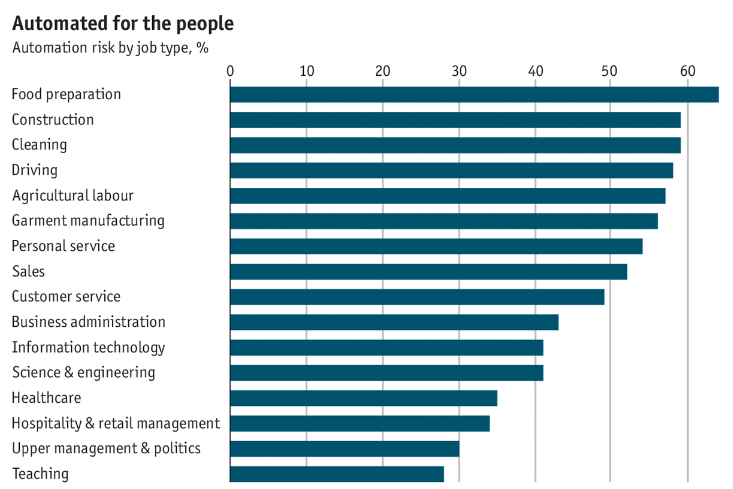

"A study finds nearly half of jobs are vulnerable to automation" - The Economist
In today’s rapidly evolving world, Artificial Intelligence (AI) is not just a buzzword but a pivotal force reshaping the work landscape.
From automating routine tasks to revolutionizing decision-making processes, AI's impact on the workforce is profound and far-reaching.
Inside of this blog post, I'll delve into how AI is transforming various aspects of work and what this means for businesses and employees alike.
The transformative impact of Artificial Intelligence in the modern workplace is most evident in how it handles tasks that are tedious and repetitive. This is where AI truly shines, bringing efficiency and accuracy that far surpass human capabilities.
For example, instead of having a human data analyst analyze data themselves, while taking loads of time to complete the task and be prone to making mistakes; companies can instead leverage advanced machine learning algorithms, which are capable of easily sifting through vast amounts of data and extracting valuable insights in a fraction of the time it would take a human analyst. As you can imagine, such an addition would not only speed decision-making processes, but also the accuracy of conclusions drawn from the data (with enough training, of course).
However, the scope of AI's impact is not limited to just automating simple tasks. Its influence extends far deeper, venturing into realms that require intricate precision and specialized knowledge. Take the healthcare sector as an example, where advanced and well sophisticated algorithms are able to assist in diagnoses. The technological capabilities of AI are otherworldly, and yet there still remains a lot of room for it to improve and advance even further.
Enhanced Decision Making with AI
AI has become a game-changer in how businesses process information and make decisions. Its ability to handle and analyze large volumes of data is unparalleled, particularly in identifying patterns and trends that would be undetectable to the human eye.
In the finance sector, some institutions use AI to analyze market trends, individual stock performance, and macroeconomic indicators, among other data points.
In the realm of marketing, AI's ability to understand and predict consumer behavior is transforming how campaigns are designed and executed. Through the analysis of customer data — including past purchases, online browsing behavior, and social media interactions — AI can identify specific customer preferences and needs.
As AI systems are exposed to more data over time, they learn and adapt, becoming even more accurate in their predictions and insights. Ultimately, their usage and application in all sorts of industries is to be expected.
The Rise of AI-Driven Creativity
Nobody could've predicted how soon AI would take over creativity. Fun fact, the last pillar that was expected for AI to conquer was creativity. But yet, somehow, it was the first. Nowadays, creativity is something that is simply not required by the average worker, or even some sophisticated workers, to get high-quality work completed.
In the realm of art and design, AI-powered software has become a valuable ally for artists and designers, with it being able to analyze vast collections of artistic works, learn specific styling elements and techniques, and generate stunning visuals on command.
In the sphere of content creation, AI algorithms can generate basic articles, summaries, and even creative content like poetry or short stories.
It's important to note that although AI has this ability, it is not replacing human creativity but rather augmenting it (for now).
Personalization and Customer Experience
Personalization and a good customer support are essential components if a business wants to succeed in today's world. Thanks to AI and its proficiency in parsing and understanding customer data, both of these components are completely covered.
System such as chatbots and virtual assistants are now capable of providing around-the-clock support, analyzing previous customer interactions, purchase histories, and preferences. This allows for highly personalized recommendations to customer inquiries.
And when businesses are able to reach this level of personalization, the customer experience boosts significantly in return.
As you might imagine, the automation of these customer interactions thanks to AI allows human employees to divert their attention and skills to more complex, nuanced issues that require humans on deck. The result is a more efficient customer service operation where AI handles routine queries and escalates more involved issues to human agents, striking a balance between efficiency and personal touch.
AI and the Future of Workforce Skills
We've already discussed how Artificial Intelligence has changed creativity, job employment, and the need for human involvement in repetitive, slow, time-consuming tasks. With this addition, there is bound to be a change in the demand for different skills in the job market.
Employees who can interpret and glean insights from the data processed by AI are vital. These skills allow businesses to make informed decisions based on the analysis provided by AI systems.
On the human-centric side of skill sets, emotional intelligence, creativity, and problem-solving are gaining prominence. Emotional intelligence is key in managing and leading teams effectively, especially in an increasingly digital work environment.
Finally, complex problem-solving skills are more valuable than ever. While AI can assist in analyzing situations and providing data-driven insights, human judgement is still needed in situations where only human intellect can solve it, such as an error in an machine's code or data (important in regards to ethical concerns).
Challenges and Ethical Considerations
"AI is going to take your job."
Have you heard that statement before, by chance? Well, thankfully it's still not that advanced yet to actually take your job. But, that doesn't not stop it from it progressing any further and eventually reaching that point.
As AI becomes increasingly capable of performing tasks that were traditionally done by humans, there is a growing concern that certain jobs may become obsolete; which is entirely accurate. Automation through AI could lead to the phasing out of roles, particularly those involving routine and repetitive tasks.
However, it's also argued that AI could create new job opportunities, demanding different skill sets and leading to a shift in the job market rather than a reduction.
Data Privacy
If you are someone active in AI, then you would be aware that the biggest concern when it comes to advanced AI-powered systems is data protection and safety. The simple explanation behind the concern is this: because these systems thrive off of data, which can be confidential or sensitive in some cases (think financial data as an example), if not carefully dealt with, it can be leaked to the public and be mishandled with.
Aside data privacy is another problem: AI bias. This issue arises all thanks to unnoticed errors in a system's data, which gives the system no other choice but to be biased. Remember, these machines function through data, and if the data is biased towards a certain group, idea, or whatever, it too will be biased. Otherwise, it won't be.
AI in Automation: Beyond Routine Tasks
Conclusion: Embracing AI with a Balanced Approach
AI is undeniably transforming the work landscape, bringing both opportunities and challenges. Businesses that embrace AI with a balanced approach, recognizing its potential while being mindful of its limitations and ethical implications, will be well-positioned to thrive in this new era.
For employees, adapting to an AI-enhanced workplace means focusing on upskilling and embracing a lifelong learning mindset. As we continue to navigate this AI-driven transformation, it's clear that the future of work will be a blend of human and machine collaboration, for the better, or for the worse.

